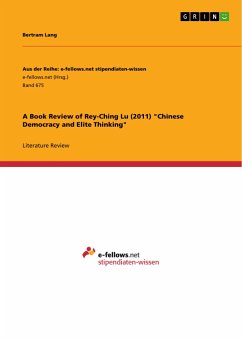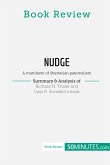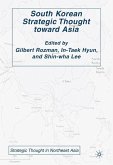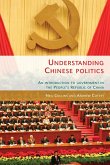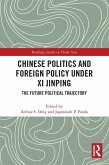Literature Review from the year 2012 in the subject Politics - International Politics - Region: Far East, grade: 1,0, University of Freiburg (Seminar für Wissenschaftliche Politik), course: Hauptseminar Democracy and Development: A Comparative Asian Perspective, language: English, abstract: The question whether China will or will not follow a path of democratic reforms in the near future has been repeatedly asked by many scholars over the last years, even decades. Since the beginning of China's economic reforms and development, modernisation theorists have always been in the front-line when it came down to predicting the country's soon-to-come political liberalisation.However, after decades of contradictory results of quantitative studies on the alleged causal relationship between economic development and democracy, there is growing consent to Seymour Martin Lipset's statement that "[w]hether democracy succeeds or fails continues to depend significantly on the choices, behaviors,and decisions of political leaders and groups" (Lipset 1994: 18).Completely in line with what the German political scientist Wolfgang Muno describes as the "need for qualitative analyses of [...] important actors, concepts and strategies" (Muno 2001: 50) in the debate about democracy and development, Rey-Ching Lu's recently published book "Chinese democracy and elite thinking" focuses upon the ideas and convictions of a few members of the mainland's elite, from which he draws conclusions about China's political development in the next couple of years. The underlying assumption is that, contrary to many Western theorists' beliefs, it is neither the middle class nor the economic liberalisation in itself that will spark democracy 'from the bottom', but rather the changing attitudes of the more and more globalised social elite that will eventually lead to a top-down process of political reform and liberalisation.This book review focuses on the most important aspects of Lu's methodological approach and line of argument. After a presentation of his methodological proceeding, the main findings and conclusions of Lu's study will be described and discussed. Then, a critical assessment of the author's arguments will be made, also considering other scholars' views on the issues of China's possible democratization and the role of its elites in this process.
Hinweis: Dieser Artikel kann nur an eine deutsche Lieferadresse ausgeliefert werden.
Hinweis: Dieser Artikel kann nur an eine deutsche Lieferadresse ausgeliefert werden.

